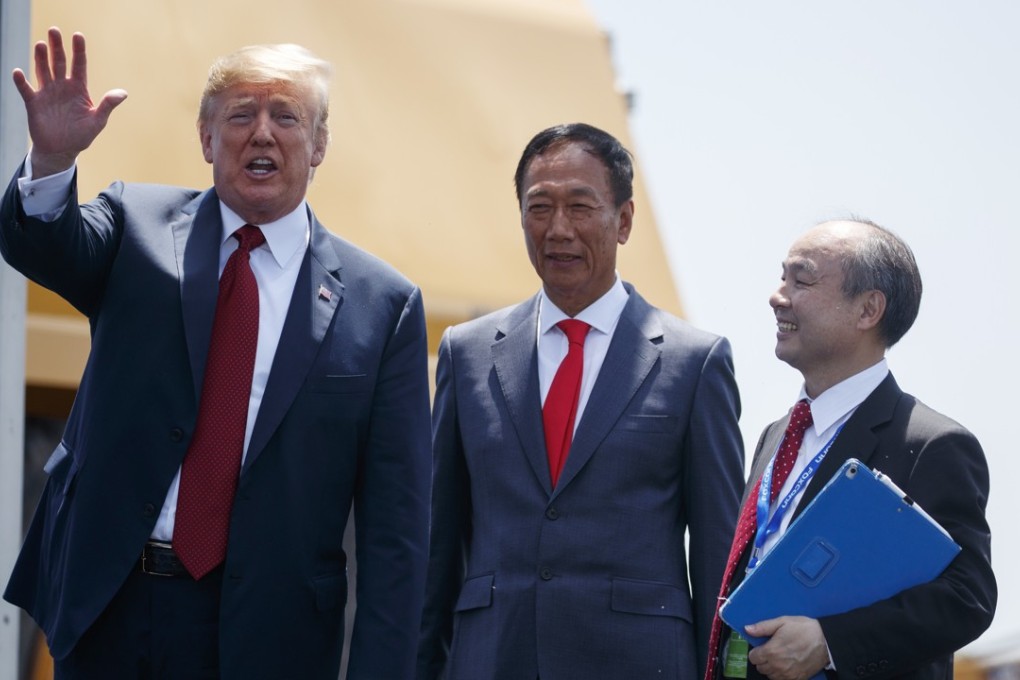Opinion | Asia’s chief executives do not work for Donald Trump, or do they?

Foxconn Technology Group’s billionaire founder Terry Gou says the world is overreacting to Donald Trump’s trade war. Softbank’s chairman Masayoshi Son says he’ll invest US$50 billion in America because of the US president’s “passion” and “energy”.
There’s only one logical response to such views from two of Asia’s smartest CEOs: Huh?
On June 28, Gou and Son joined Trump in the US state of Wisconsin, where Foxconn is opening a US$10 billion plant. Trump, not surprisingly, used the groundbreaking ceremony to tout his hardline stance on Beijing.
“We’ve helped rebuild China,” Trump said. “Someday they’ll say thank you. But we don’t want to do that any more. We want to have a fair and balanced situation.”
Yet 48 kilometres away, Gou and Son can find ample evidence that they may be making dubious bets on Trump’s economy.
There, Harley-Davidson, as iconically American a company as you can find, is plotting a move abroad to avoid the very trade policies both men claim aren’t a big deal.
